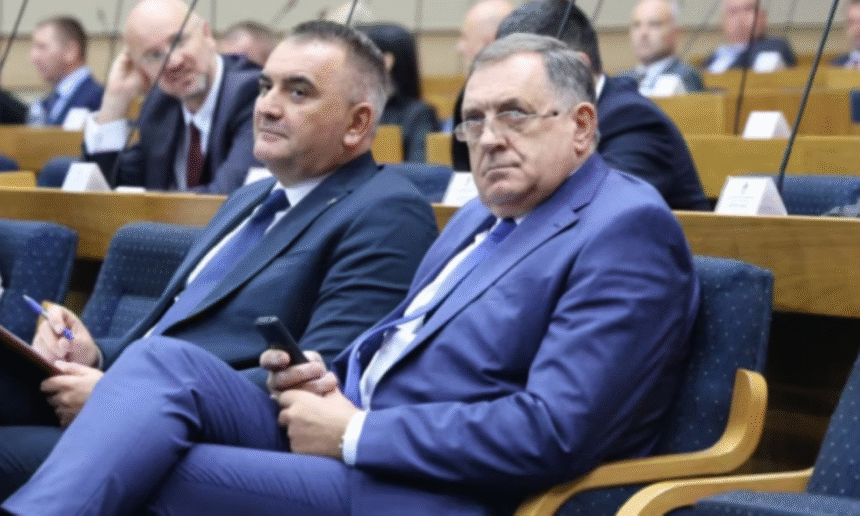The Republika Srpska (RS) entity in Bosnia and Herzegovina has appointed a new executive government without a constitutional mandate, with Savon Minić named as Prime Minister. The vote took place in the RS National Assembly in Banja Luka.
Minić, formerly Minister of Agriculture, Forestry, and Water, comes from the Alliance of Independent Social Democrats (SNSD), the party of Milorad Dodik.
The government lacks a constitutional basis because Dodik had granted Minić the mandate on August 23, despite having lost the presidency following a final decision by the Bosnia and Herzegovina Court and subsequent removal of his mandate by the Central Election Commission (CEC).
According to RS’s Constitution, the president proposes a candidate for Prime Minister to the National Assembly. Following Dodik’s removal, the entity remains without a president, as neither the Constitution of Bosnia and Herzegovina nor RS law provides guidance on filling a vacancy.
Experts warn that Dodik’s actions may constitute criminal offenses:
- Obstructing implementation of court decisions
- Issuing documents or signing laws without authority
- Creating political crises that undermine constitutional order
Under Bosnia’s Penal Code, failure to comply with a state court decision can result in 6 months to 5 years in prison. Additionally, false representation as president carries a penalty of up to one year in prison or a fine.
The RS National Assembly previously accepted the resignation of Prime Minister Radovan Višković on August 22, leaving the executive with a technical mandate. After appointing Minić, the Assembly rejected extraordinary presidential elections and called on RS institutions not to cooperate with the CEC, escalating tensions.
The new government plans to hold a referendum on October 25, asking citizens whether they support the enforcement of decisions by the High Representative Christian Schmidt, the Court, and the CEC, all of which had penalized Dodik.
During his program presentation, Minić described the RS’s goals:
- Strengthening the entity’s economy through institutional and public enterprise reforms
- Enforcing laws in line with the Dayton Agreement
- Cooperating with the Serbian government per Assembly conclusions
- Restoring and maintaining relations with the United States, Russia, Hungary, China, and Belarus
The proposed cabinet consists mostly of ministers from the previous government, with some rotations planned.







